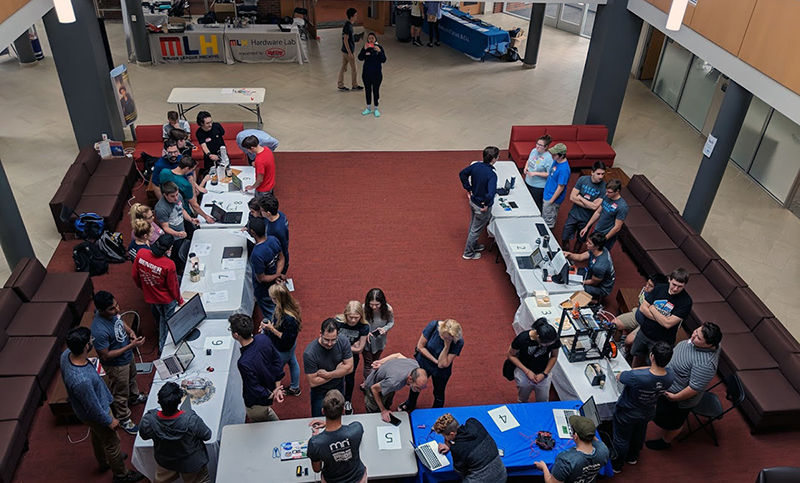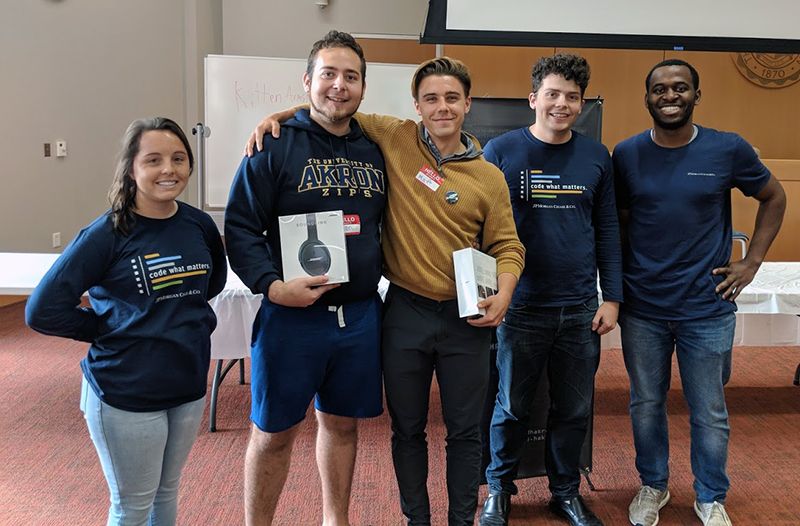Hacking skills produce hat for the blind, fatigued driver detector at UA Hackathon
The definition of hacking today is much different than 1990s Hollywood movies would lead us to believe. What was once known as an illegal means of gaining access to highly secure websites and databases has now evolved into ways to swiftly and skillfully create real and usable applications – known as “hacks.”
About 150 of the best and brightest students from universities around Ohio, surrounding states and Canada made The University of Akron’s C. Blake McDowell Law Center their home for 24 hours, beginning on Oct. 6, for HAkron 3000, a student-run hackathon that merged engineering and computer science. Teams designed innovative solutions to real-world problems, and learned new skills.

All in a day, the students invented 27 hacks.
Three computer science and engineering students from The Ohio State University won the hackathon’s grand prize of $1,000. The trio developed a Super Sombrero — at hat designed for blind individuals. The invention detects nearby objects and alerts the person wearing the hat via speaker/headphones and text-to-speech to stop walking if they are about to collide with the object.
This year, $8,000 in prizes was awarded in 20 different categories. Prizes included cash, Smartplugs, Tile Mates, Amazon gift cards and even Legos.
Other winners included a device for sleepy drivers that can detect fatigue, send an alarm to the driver and offer nearby hotel information via Google Maps; and Niftycakes, a 3D printer that was transformed into a frosting robot for adding a little extra sugar to baked goods.

“We had a lot of really good project submissions this year, and the new venue created a welcoming, bright and modern environment that helped our hackers feel comfortable for 24 hours,” said Laverna Wienclaw, a computer engineering major and vice president of HAkron.
HAkron 3000 was open to any currently enrolled and recently graduated college students and current high school students. The only requirements for hackers to participate were to bring clothes, toiletries and anything needed to function independently for 24 hours, and, of course, an idea.
Students networked with sponsors, attended workshops to spark project ideas, chatted with mentors on debugging issues, noshed on free food and energy drinks, and participated in activities such as cup stacking during break time. At the end of 24 hours, judges in industry and faculty voted for their favorite projects. Categories included: Most Complex Hardware, Best Overall, Most Unique among others.
See all the submissions online.
Media contact: Alex Knisely, 330-972-6477 or aknisely@uakron.edu.
